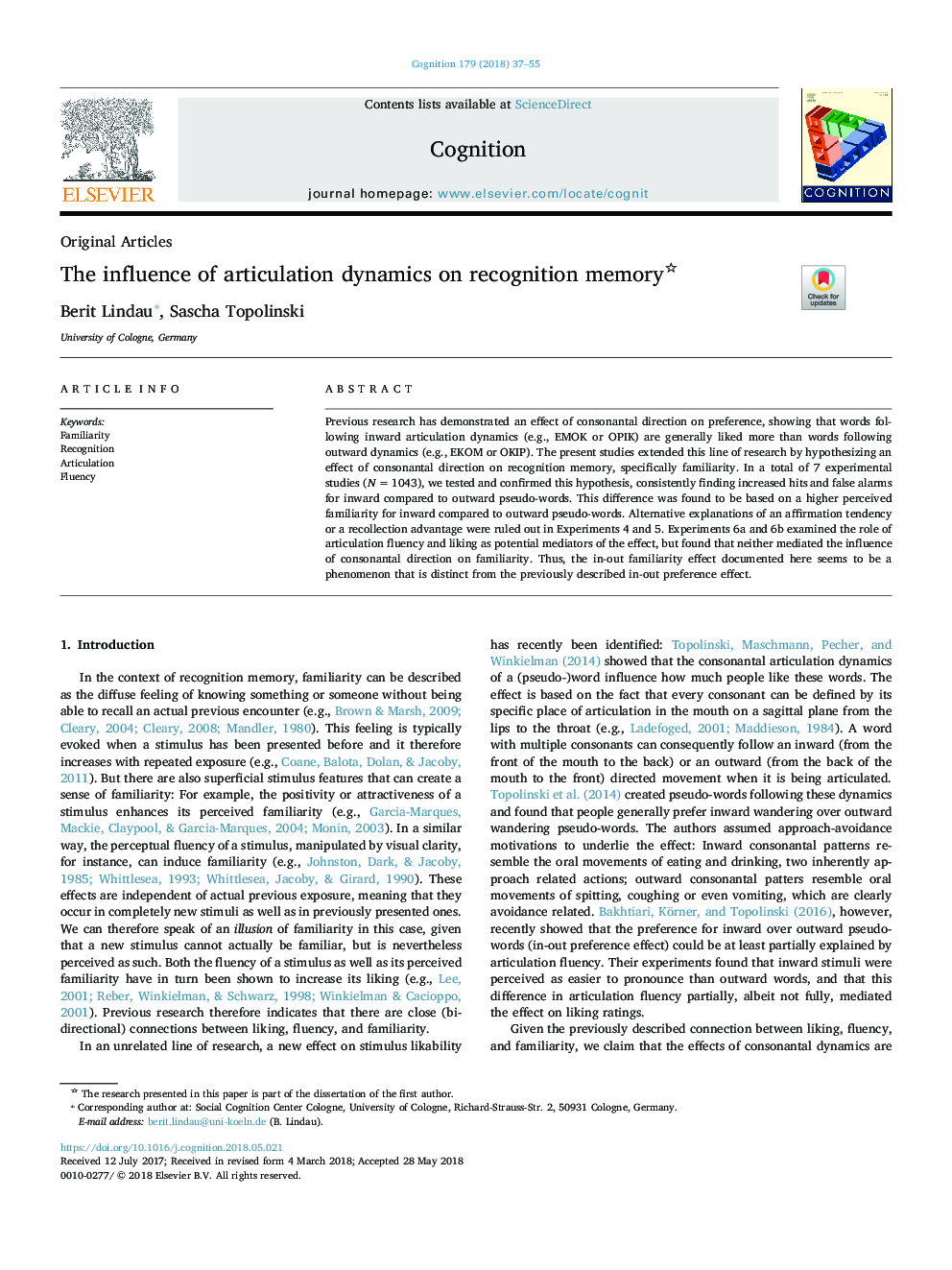| Article ID | Journal | Published Year | Pages | File Type |
|---|---|---|---|---|
| 7285124 | Cognition | 2018 | 19 Pages |
Abstract
Previous research has demonstrated an effect of consonantal direction on preference, showing that words following inward articulation dynamics (e.g., EMOK or OPIK) are generally liked more than words following outward dynamics (e.g., EKOM or OKIP). The present studies extended this line of research by hypothesizing an effect of consonantal direction on recognition memory, specifically familiarity. In a total of 7 experimental studies (Nâ¯=â¯1043), we tested and confirmed this hypothesis, consistently finding increased hits and false alarms for inward compared to outward pseudo-words. This difference was found to be based on a higher perceived familiarity for inward compared to outward pseudo-words. Alternative explanations of an affirmation tendency or a recollection advantage were ruled out in Experiments 4 and 5. Experiments 6a and 6b examined the role of articulation fluency and liking as potential mediators of the effect, but found that neither mediated the influence of consonantal direction on familiarity. Thus, the in-out familiarity effect documented here seems to be a phenomenon that is distinct from the previously described in-out preference effect.
Related Topics
Life Sciences
Neuroscience
Cognitive Neuroscience
Authors
Berit Lindau, Sascha Topolinski,
